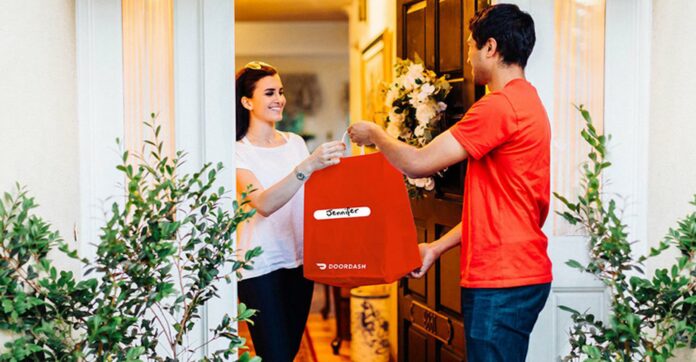Going above and beyond normalcy
COVID-19 has not been great. However, it does not mean that all have
suffered. Many billionaires saw their wealth increase during the pandemic and saw
suffering trickle down to the rest of the population. While many restaurants struggled,
DoorDash has never been more profitable. As the vaccine rollout continues and some sort of pseudo-quasi-normalcy emerges, many have questioned the viability of DoorDash.
DoorDash foresees this problem and their new business strategy starts with industry-leading customer service practices for their employees independent contractors.
DoorDash CEO Tony Xu has provided the masses with an interesting look at
how the food delivery app plans to remain profitable. In the pandemic, DoorDash rolled out contact-free delivery. In order to overcorrect for such pandemic safety measures, DoorDash plans to roll out an array of post-pandemic unsafety measures. The most promising? Full-contact delivery.
Methods of full-contact delivery to start will likely include anything from tackling the recipient as their order is being delivered to spoon feeding them their orders “here comes the airplane” style. Although Xu has expressed hope that Dashers (the term for their employees independent contractors) will be equipped to “baby bird” the customer their meal.
These plans have not been received well by many. Public health experts have
already weighed in with worries about this practice being “unsanitary” and “a really good way to start an outbreak of something.” Labor rights activists have also called this proposed plan “degrading” and “unfair.” In more leaked memos, DoorDash responded that these critiques were “all we could hope for in a new program.”
DoorDash’s aggressive plans could put pressure on competitors such as
GrubHub and UberEats to continue to innovate better methods of capitalizing on a
nation trending further and further toward a sedentary, gluttonous and decadent
lifestyle.
Written By: Ean Kimura — etkimura@ucdavis.edu
Disclaimer: (This article is humor and/or satire, and its content is purely fictional.
The story and or names of “sources” are fictionalized.)









